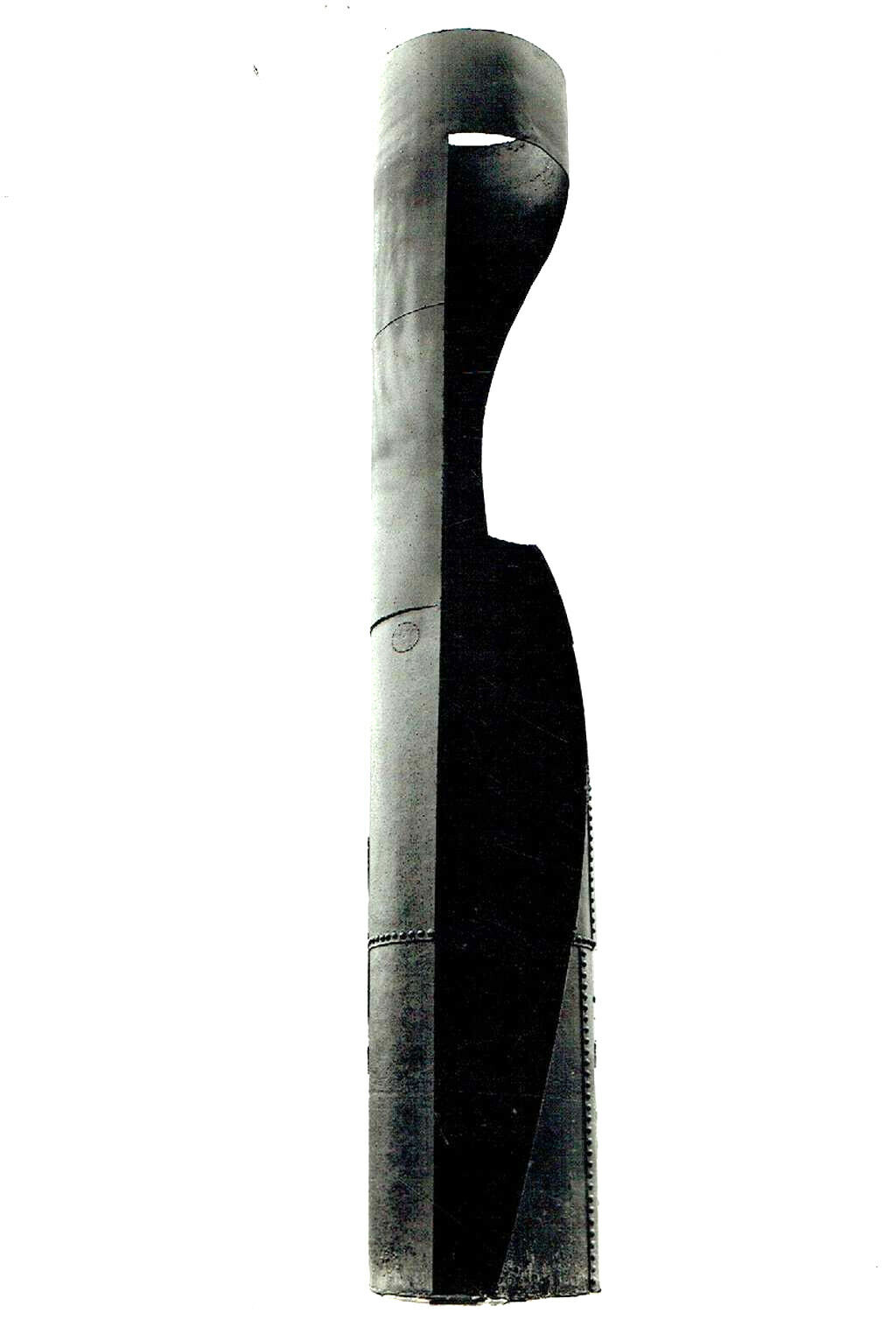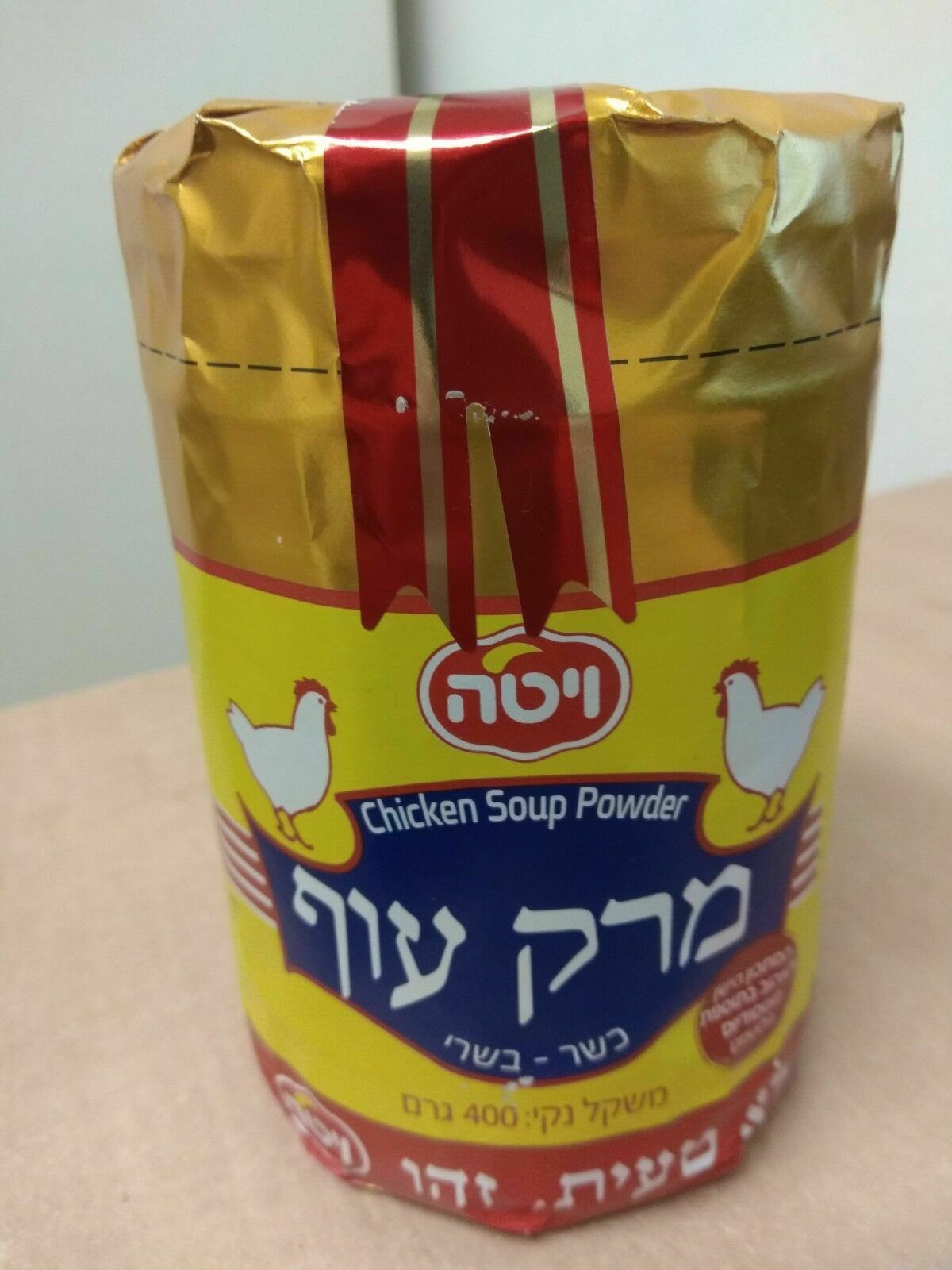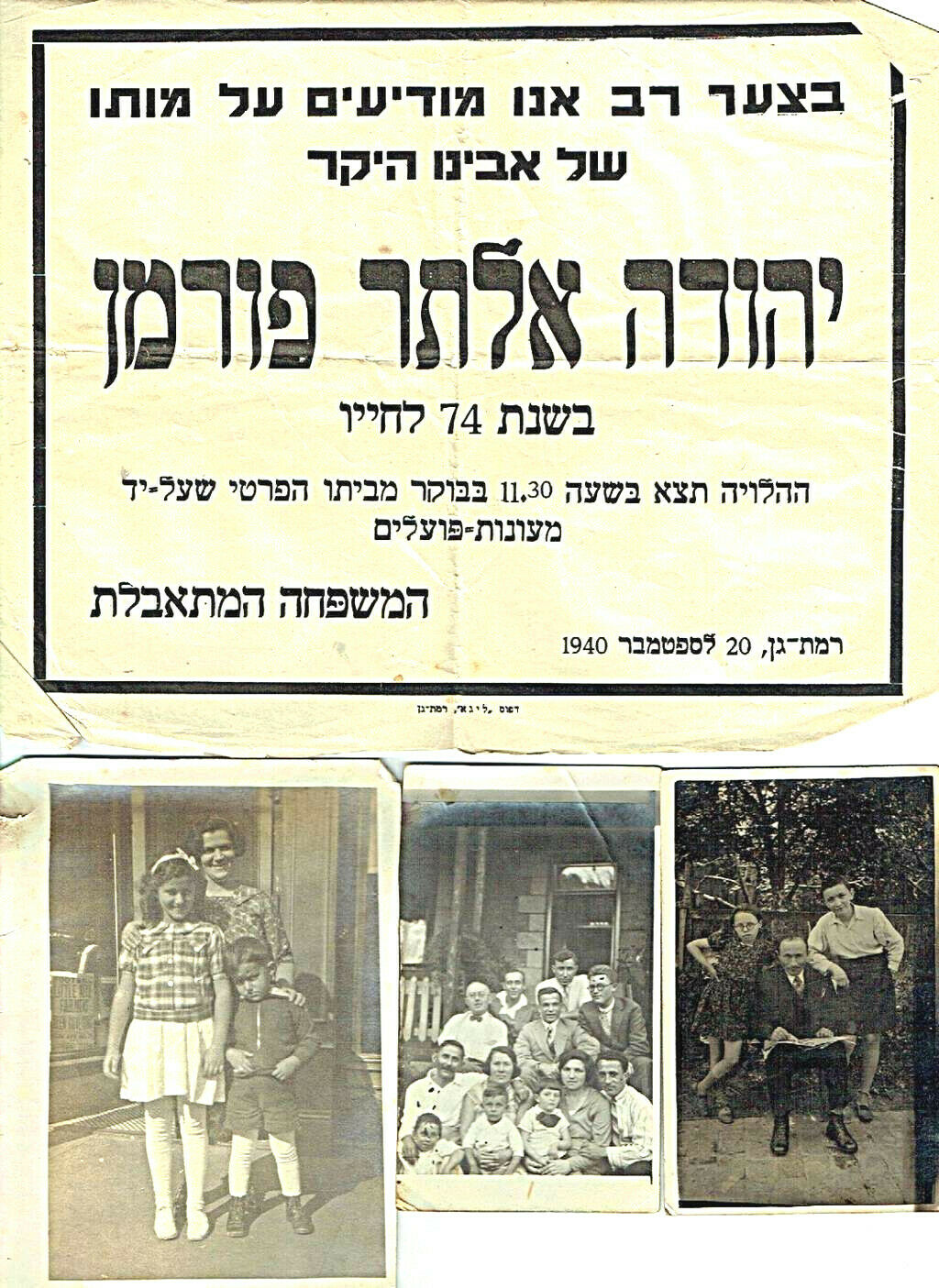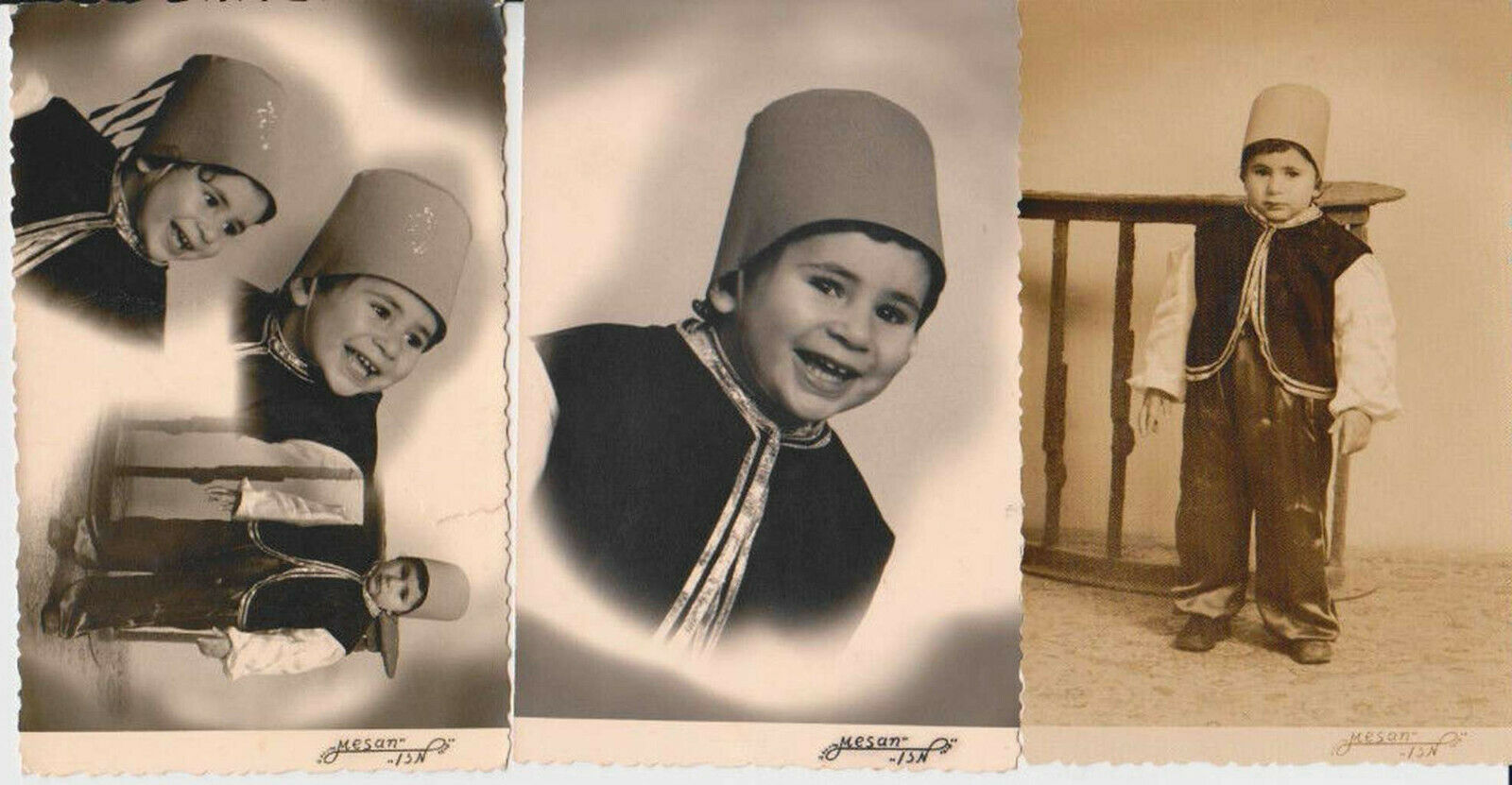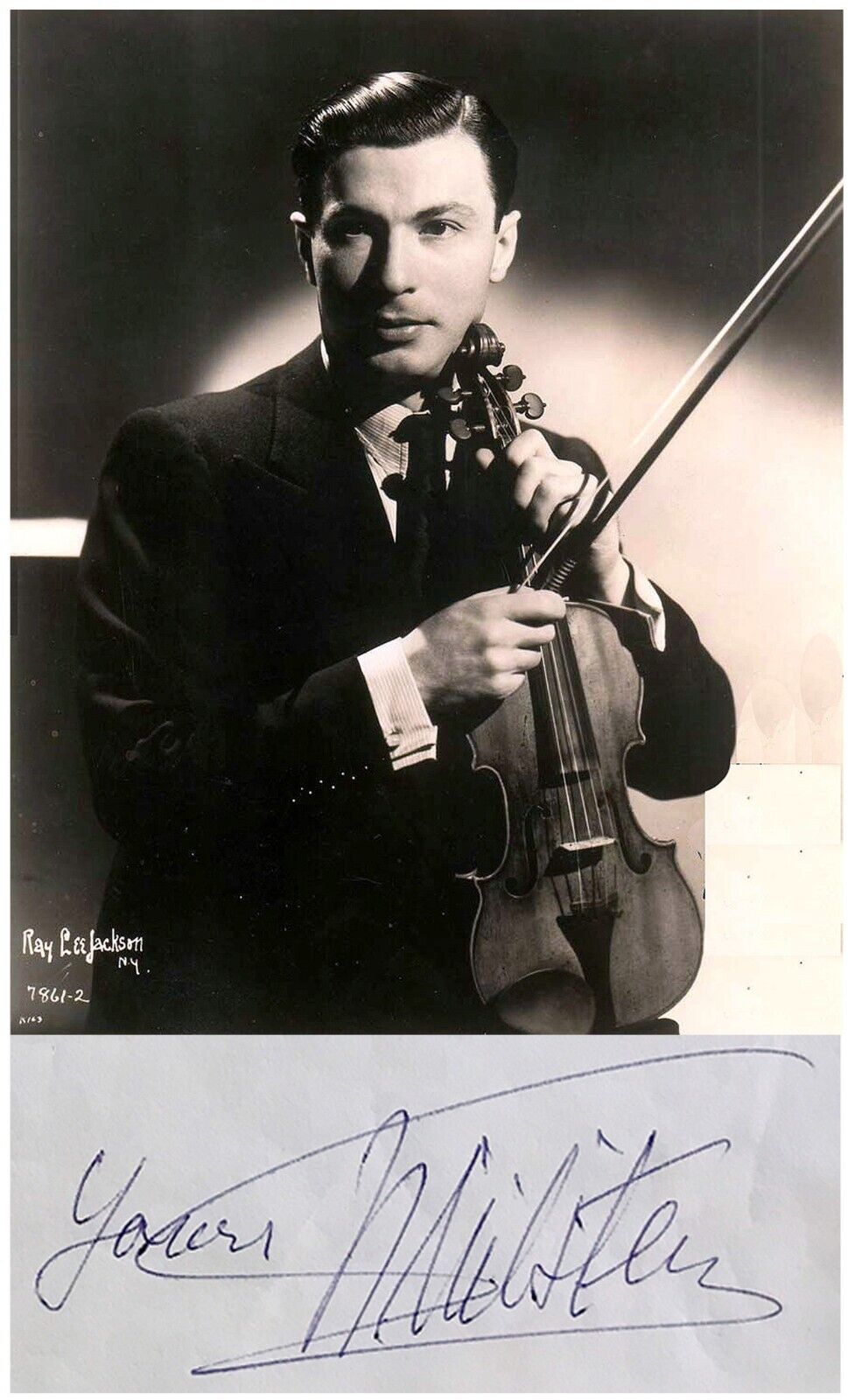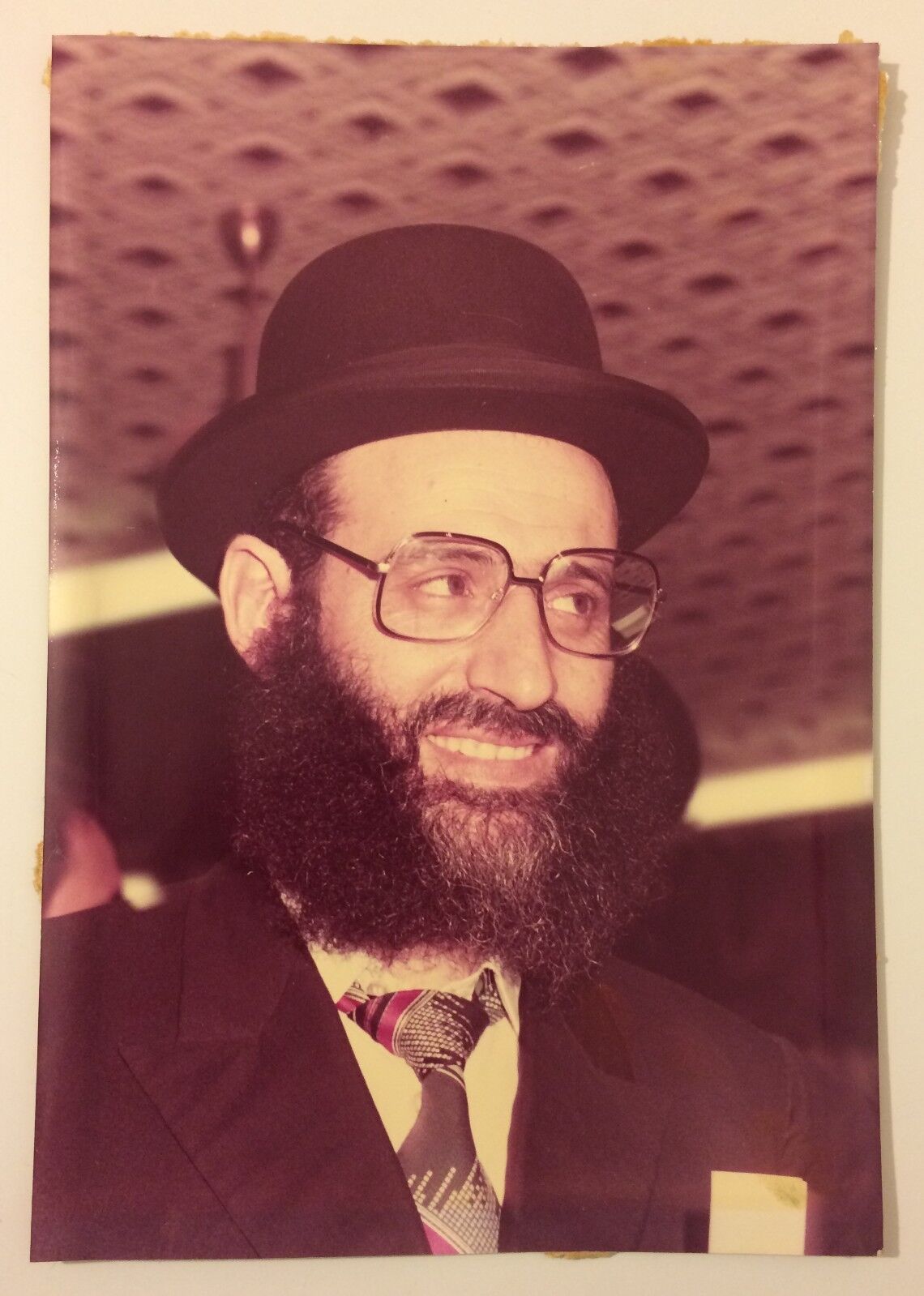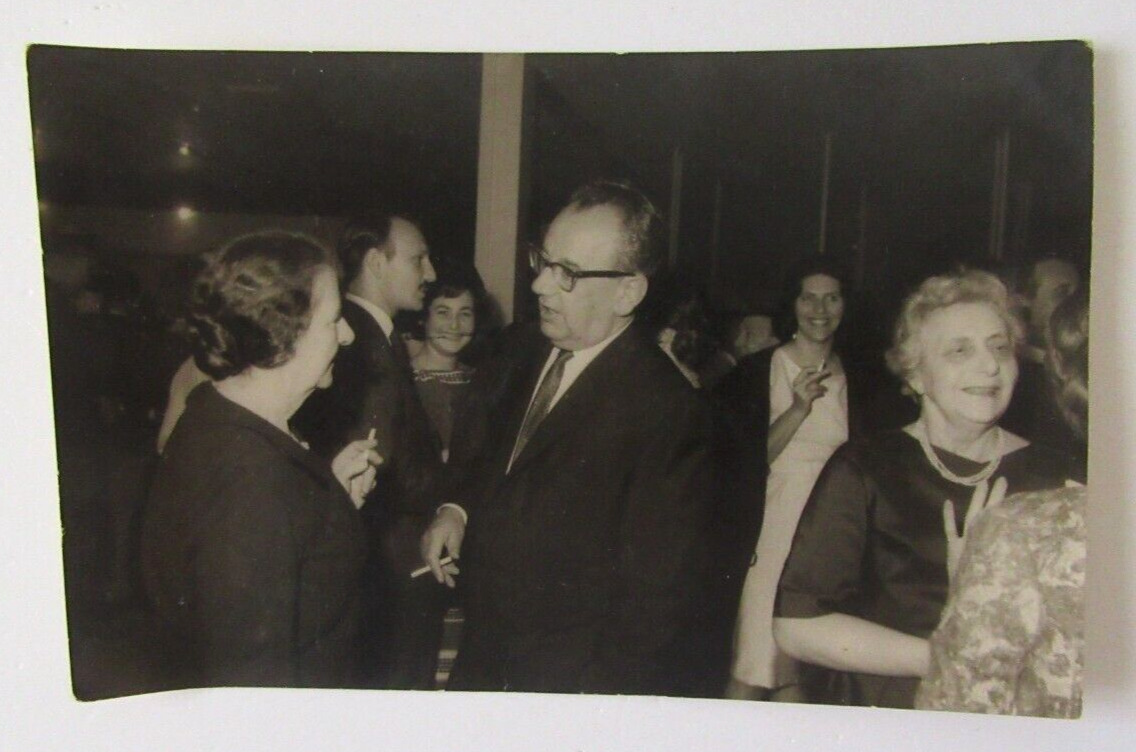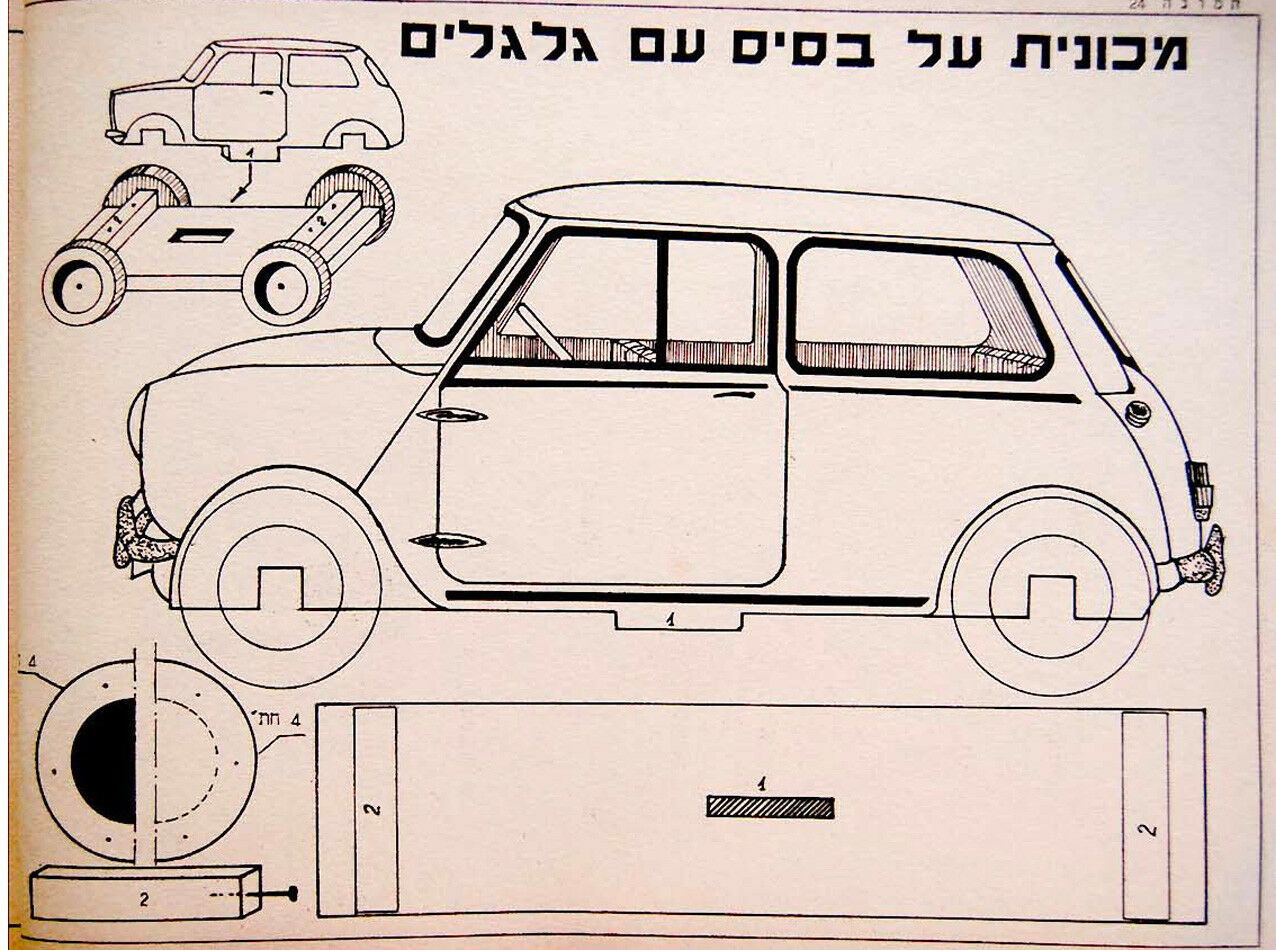-40%
1970 Original HAGASHASH NA'HIVER Poster ISRAEL FOLKLORE Hebrew HUMOR MUSIC SHOW
$ 86.85
- Description
- Size Guide
Description
DESCRIPTION:
Up
for sale is a VERY RARE and ILLUSTRATED Jewish - Hebrew - Judaica ADVERTISING THEATRE POSTER which was beautifuly DESIGNED , Published and distributed around 40-50 years ago in the 1970’s ISRAEL .The ILLUSTRATED - PHOTOGRAPHED poster was issued by the legendary Jewish Israeli GROUP of HUMOR and MUSIC - HA'GASHASH HA'HIVER (
הגשש החיור
) , Shaike Levi , Poli Poliakov and Gavri Banai , Former members of the LEGENDARY GROUP - HATARNEGOLIM ( The ROOSTERS ). The PERFORMANCE took place in the Cinema - Theatre hall "RAMA" in Ramat Gan.
The producer was Avraham ( Pashanel ) Deshe. The POSTER depicts a very funny image of all three members . Original beautifuly designed illustrated POSTER . Similar posters are being offered on ebay for over 0 - My pricing is by far more modest :-) . Around 20 x 14 " . ( Not accurate ) . Very good condition. Clean. Folded. ( Pls look at scan for accurate AS IS images ) Will be sent roled inside a protective sealed rigid TUB
E .
AUTHENTICITY
:
This poster is guaranteed ORIGINAL from ca 1970's , NOT a reprint or a recently made immitation. , It holds a life long GUARANTEE for its AUTHENTICITY and ORIGINALITY.
PAYMENTS
:
Payment method accepted : Paypal
& All credit cards
.
SHIPPING
:
Shipp worldwide via registered airmail is $ 25 .W
ill be sent in a special protective rigid sealed package.
Will be sent around 5 days after payment .
HaGashash HaHiver (Hebrew: הגשש החיוור, lit. The Pale Tracker) was an iconic Israeli comedy trio. It was also known as the Gashashim. Its three members were Yeshayahu Levi ("Shaike"), Yisrael Poliakov ("Poli") (deceased) and Gavriel Banai ("Gavri"). Contents 1 History 2 Awards and recognition 3 Cultural significance 4 See also 5 References History[edit] Shaike, Poli and Gavri had been members of Tarnegolim" ("The Roosters"), founded in 1960 by Naomi Polani.[1][2][3] The Gashashim put on many comedy skits which became classics in their own right ("The Drafted Car", "Off Side Story", "Kreker vs Kreker", etc.) and contributed numerous quotes to modern spoken Hebrew. They also starred in comic Israeli movies which became major hits, such as Givat Halfon Eina Ona and recorded many famous Hebrew songs.[4] Some of Israel's greatest authors and playwrights, including the late Nisim Aloni, prepared material for the trio. The producer of HaGashash HaHiver was Avraham Deshe ("Pachanel"). The Gashash' sketches transcended class and education. Their elaborate word play became known as Gashashit. On October 29, 2007 Yisrael Poliakov died at age 66.[5] Awards and recognition[edit] In 2000, HaGashash HaHiver and its three members were awarded the Israel Prize for lifetime achievement & special contribution to society and the State of Israel.[5][6][7] The judges who awarded the prize, wrote of their decision to bestow the award on the group: "The uniqueness of Hagashash Hahiver is in its two faces: On the one hand, it reflects the life and the culture that were created in Israel during its first 50 years and in the course of wars, immigration absorption and the struggle for its existence. On the other hand, it has taken an active role in shaping this culture, creating its language and sketching its identity...Their language, Gashashit, and the images they created broke the walls of the inflexible Hebrew language and became standard idiomatic phrases, so much so that he who doesn't know them doesn't know a large part of the culture that has sprouted here. Phrases such as, 'Drive in peace, the keys are inside,' 'There was an engine?' [referring to the "Drafted Car" skit where the army returns a requisitioned car without any of its original parts], 'Israbluff' and many others that became part of our everyday language."[5][8] Cultural significance[edit] The group has been repeatedly cited as helping to form a part of the cultural self-identity of many Israelis. Israeli sociologist and scholar Baruch Kimmerling called the group "more significant for me than Shakespeare" in terms of this.[9] "They pushed the boundary of surrealism in a language that had been dead for a couple thousand years," said Stand Up! Records founder Dan Schlissel, a fan of the group.[10] In her book No Joke: Making Jewish Humor, Yiddish literature scholar Ruth Wisse stated that "if I ask an assortment of Israelis, 'what comes to mind when I say, Israeli humor?' almost everyone answers 'HaGashash HaHiver.'"[11] ***Yisrael "Poli" Poliakov (Hebrew: ישראל פוליאקוב) (July 7, 1941 – October 30, 2007) was an Israeli comedian and actor. Poliakov was born in Jerusalem, and grew up in Tel Aviv. He became one of the three members of the Israeli comedy group, HaGashash HaHiver (The Pale Tracker).[1] Contents 1 Career 1.1 HaGashash HaHiver 2 Death 3 See also 4 References 5 External links Career[edit] Poliakov originally chose a career as a farmer and studied at the Kfar HaYarok agricultural high school. This changed when he was spotted at a school party by members of Nahal Brigade's entertainment troupe, and he was soon recruited by the group. In 1961, he joined the original singing band Hatarnegolim (The Roosters) that had been founded by Naomi Polani, the original cast of which broke up in 1964.[1][2][3][4] Poliakov appeared in a number of famous Israeli films, often with members of HaGashash HaHiver. His film credits include Schlager (The Hit) in 1979; Krav al Hava'ad (The House Committee) in 1986; and Givat Halfon Eina Ona (Halfon Hill Doesn't Answer) in 1975. He appeared in a number of Israeli television roles, and produced and acted in his daughter's television show, It's All Honey.[1] Poliakov began working on stage as a theater actor in 2000. His credits include The Israeli Family, The Rubber Merchants, God's Finger, Mother Courage and The Return of Moris Shpigelman.[1] HaGashash HaHiver[edit] Abraham "Pashanel" Deshe, a producer and agent who died of cancer in 2004 at age 78, started HaGashash HaHiver in late 1963. The group was composed of three members – Poliakov, Yeshayahu "Shaike" Levy and Gavriel "Gavri" Banai. They created a "unique Israeli comedy group," according to the Jerusalem Post. Their jokes, which included the best and worst of Israeli society, often achieved a cult status among fans.[1] In 2000, the group and its three members were awarded the Israel Prize for lifetime achievement & special contribution to society for their work.[5] The judges wrote of their award decision: The uniqueness of HaGashash HaHiver is in its two faces: On the one hand, it reflects the life and the culture that were created in Israel during its first 50 years and in the course of wars, immigration absorption and the struggle for its existence. On the other hand, it has taken an active role in shaping this culture, creating its language and sketching its identity.... Their language, Gashashit, and the images they created broke the walls of the inflexible Hebrew language and became standard idiomatic phrases, so much so that he who doesn't know them doesn't know a large part of the culture that has sprouted here. Phrases such as, 'Drive in peace, the keys are inside,' 'There was an engine?' [referring to a mechanic who cheats a client], 'Israbluff' and many others that became part of our everyday language.[1][6] Death[edit] Yisrael Poliakov died of cancer at the Rabin Medical Center-Beilinson Campus in Petah Tikva on October 30, 2007, at the age of 66, following a two-week hospitalization for heart problems. Poliakov's coffin was taken to Cameri Theater in Tel Aviv for a public memorial service, and was buried in a cemetery in Kibbutz Einat.[1] Fellow HaGashash HaHiver member Yeshayahu Levy told Israel Army Radio: "...lost a brother. There is no other word. We've been together since 1958, and he was part of me. He was a great talent, an outstanding comic actor, and a wonderful friend... The pain is great."[1] Actor Moshe Ivgi, who costarred with Poliakov in The Rubber Merchant, told the Jerusalem Post: "He was a great actor who was blessed with comic and dramatic qualities, and it was a pleasure to work with him. Poli was a modest and ego-free man, full of love, and I am sure he would have done so much more."[1] President Shimon Peres stated "Generations upon generations watched him and fell captive to his charm".[7] *** Yisrael 'Poli' Poliakov dead at 66 Yisrael Poliakov, actor, singer and member of the legendary comedy trio 'Hagashash Hahiver,' died Monday night of cancer at age 66. By SHELLY PAZ OCTOBER 31, 2007 09:32 yisrael poliakov 8 8224 (photo credit: Cameri Theatre) Advertisement Yisrael "Poli" Poliakov, actor, singer and member of the legendary comedy trio Hagashash Hahiver (The Pale Scout), died Monday night of cancer at Petah Tikva's Rabin Medical Center-Beilinson Campus, at age 66. Poliakov was hospitalized two weeks ago with a heart ailment; his death was announced on Tuesday morning. He was born in Jerusalem in 1941, grew up in Tel Aviv and studied at the Kfar Hayarok agricultural high school. He planned to work as a farmer, but members of the Nahal Brigade's entertainment troupe spotted him at a school party and recruited him. His professional career began in 1961 when he joined the band Hatarnegolim (The Roosters), composed of graduates of IDF musical groups. The group broke up in 1964. In late 1963, agent/producer Abraham "Pashanel" Deshe started Hagashash Hahiver, composed of three members of Hatarnegolim - Poliakov, Yeshayahu "Shaike" Levy and Gavriel "Gavri" Banai. Deshe died of cancer in 2004, at age 78. Together, Hagashash Hahiver created a unique Israeli comedy group whose jokes and skits acquired cult status and captured the Israeli character at its best and worst. Levy told Army Radio on Tuesday that he had "lost a brother. There is no other word. We've been together since 1958, and he was part of me. He was a great talent, an outstanding comic actor, and a wonderful friend... The pain is great." The four men won the Israel Prize for lifetime achievement in 2000. The judges said: "The uniqueness of Hagashash Hahiver is in its two faces: On the one hand, it reflects the life and the culture that were created in Israel during its first 50 years and in the course of wars, immigration absorption and the struggle for its existence. On the other hand, it has taken an active role in shaping this culture, creating its language and sketching its identity." The judges continued: "Their language, Gashashit, and the images they created broke the walls of the inflexible Hebrew language and became standard idiomatic phrases, so much so that he who doesn't know them doesn't know a large part of the culture that has sprouted here. Phrases such as, 'Drive in peace, the keys are inside,' 'There was an engine?' [referring to a mechanic who cheats a client], 'Israbluff' and many others that became part of our everyday language." Poliakov and the other members of Hagashash Hahiver played in many classic Israeli films, including Givat Halfon Eina Ona (Halfon Hill Doesn't Answer, 1975), Shlager (The Hit, 1979) and Krav al Hava'ad (The House Committee, 1986), as well as on TV. In 2000, Poliakov started acting in plays. They included God's Finger, The Return of Moris Shpigelman, The Israeli Family, The Rubber Merchants and Mother Courage. In recent years, he produced plays and participated in his daughter's TV show, It's All Honey, playing himself, the hypochondriac, famous dad to Yael, Itamar and Ariel, and husband to Shoshana. Actor Moshe Ivgi, who performed with Poliakov in The Rubber Merchants, told The Jerusalem Post he had been lucky to get to know "this unique person. He was a great actor who was blessed with comic and dramatic qualities, and it was a pleasure to work with him. Poli was a modest and ego-free man, full of love, and I am sure he would have done so much more." Poliakov's coffin will be brought to Tel Aviv's Cameri Theater at 11 a.m. on Wednesday so the public can pay its respects, with a memorial service at 12. Poliakov will be laid to rest at 2:30 at the cemetery at Kibbutz Einat. *** Yeshayahu "Shaike" Levy (Hebrew: ישעיהו "שייקה" לוי) (born 13 December 1939) is an Israeli comedian, singer and actor. He is best known for his role in the Gashash HaHiver (HaGashash HaHiver) comedy trio, which won the Israel Prize in 2000.[1] Contents 1 Biography 2 Entertainment career 2.1 HaGashash HaHiver 2.2 Late 1960s 2.3 Film career 2.4 Television 3 Awards and recognition 4 Legal issues 5 Filmography 5.1 Notable stage acts 5.1.1 HaGashash HaHiver shows 5.2 Discography 5.3 Author 6 See also 7 References 8 External links Biography[edit] Yeshayahu (Shaike) Levy was born in Cairo, Egypt to Mazal and Moshe Levy.[2] He left Egypt with his mother in 1944, after the death of his father. The family settled in Tel Aviv but Levi spent his adolescent years in Kibbutz Ein Hayam and later Givat Brenner.[3] In 1956-1957 he led the singing group the "Givat Brenner Foursome" alongside Daniel Vardon.[4] Entertainment career[edit] During his military service, Levy served in the IDF troupe at the Gadna and then at the Central Command Troupe. Shortly after his discharge in 1960, he joined the band "The Small Hours Club" in Safed. Levi was accepted to the Cameri Theater and played a small role in a play called "The Twelfth Night" but when Naomi Polani constructed HaTarnegolim (Hebrew: התרנגולים lit. The Roosters) band, Levi preferred it over the Cameri. Levy says that he hadn't studied acting or voice coaching and that Naomi Polani was like a school to the group.[2] In 1962 Levy acted in his first movie role as an 'enemy pilot' in the film Sinaia (Hebrew: סיניה), which was based on an actual event from the Suez Crisis where a Bedouin baby was brought to Israel by an army medic after her mother had been accidentally injured by Israeli forces during the fighting.[5] Following military service in entertainment units, Levi joined HaTarnegolim and afterwards joined the HaGashash HaHiver trio in late 1963. The team staged ll comedy acts and participated in ll films along with numerous festivals, musical recordings, and television performances during a time span of 40 years.[6] From 1993 to 1999 Levy headed EMI (Artists of Israel) and in 1996 he came out with a biographical book titled Sipurim Im Rotev (Hebrew: סיפורים עם רוטב lit. 'Stories With Sauce'), which included songs and cooking recipes.[3] In 1999 he released his first solo album, "Shaike Levi."[7] Between 2003-2006 Levy portrayed Elvis Ben-David in Israeli productions based on the adaptation of the Mexican telenovela El Amor no es como lo pintan ("Love is Not as They Paint It") and also appeared in a solo stage act (Yeshayahu Chapter 2) and participated in a children's musical tape (Bamboni Ein Kamoni). HaGashash HaHiver[edit] In late 1963 Levy left The Roosters – together with two other "Roosters", Gavri Banai and Yisrael Poliakov – at the request of Avraham Deshe (Pashanel), in order to start the Gashash HaHiver trio. Levi recollects the success of the Gesher HaYarkon trio and that, while they were not certain that they could duplicate the success of the Tarnegolim, Pashanel was sure and paid their salaries throughout the long preparation months.[2] Their first act, titled Simhat Zkenti (Hebrew: שמחת זקנתי, slang for "[makes] my old lady happy") was more successful than anticipated with 350 performances across Israel by the end of 1965. The show, which was very Mizrahit in nature, had an initial unresponsive welcome by the kibbutz movement. Levi recalls Shaike Ophir being strict on the group emphasizing every 'Heth' ('Hebrew: ח') and 'Ayin' ('Hebrew: ע') like he would and attributes their acceptance by the kibbutzim to their director Nisim Aloni.[2] In 1964 Levy performed in Ephraim Kishon's critically acclaimed film Sallah Shabati (Hebrew: סלאח שבתי) alongside Chaim Topol, Gila Almagor, Zaharira Harifai, and Arik Einstein. The film was a satirical portrayal of the poor conditions and the integration of the Jewish refugees from Arab lands living in the maabara. In 1967, Levi also played in another Kishon film – Ervinka (Hebrew: ארבינקא, about an incorrigible layabout who becomes involved in the robbery of the Israeli lottery under cover of making a documentary. Late 1960s[edit] Between 1966–1970, Levy made four films under Uri Zohar together with Gavri Banai and Yisrael Poliakov: Moishe Ventilator (1966) (Hebrew: מוישה וונטילטור, also 'Moishe Air-Condition'),[8][9] a parody featuring Yaakov Bodo, Shaike Ophir, and Uri Zohar about a frugal private whose money-saving ideas include cutting maps in the operation room;[10] HaShehuna Shelanu (1968) (Hebrew: השכונה שלנו, lit. 'Our Neighborhood', also 'Fish, Football, and Girls'), a bourekas film with Shaike Ophir, Gabi Amrani, Yona Atari, Tsippi Shavit, and Gadi Yagil among others; Kol Mamzer Melekh (1968) (Hebrew: כל ממזר מלך, lit. 'Every Bastard is King') with Yehoram Gaon as a chatty driver who gets entangled in the Six Day War and ends up stopping an Egyptian armored division by himself;[11][12] and Hitromamut (1970) (Hebrew: התרוממות, also 'Takeoff'), which depicted three married men who fulfil a sexual fantasy but quickly turn to envious and guilty feelings. Hitromamut, which included Josie Katz and Leora Rivlin [Wikidata] was noted for break-through methods in low-budget production and for being filmed in 16 mm and then enlarged to 35 mm.[13] During this time the "Gashash" also participated in Menahem Golan's melodrama film Fortuna (1966) (Hebrew: פורטונה, also 'The Girl from the Dead Sea'), which starred French actor Pierre Brasseur[14] and also in Rafi Nusbaum's film HaMatara Tiran (1968) (Hebrew: המטרה טיראן, lit 'Objective Tiran') about a group of soldiers whose mission is to destroy a Soviet radar station in the Straits of Tiran.[12] Film career[edit] Between 1976–1986 the Gashash HaHiver performed in three Assi Dayan films: the a cult movie Givat Halfon Eina Ona (1976) (Hebrew: גבעת חלפון אינה עונה, lit. 'Halfon Hill Doesn't Answer'), a satire about an army reserves company observing the Egyptian border in Sinai; Shlager (1979) (Hebrew: שלאגר, also 'The Hit'), a musical comedy which featured The Frekha Song (written by Assi Dayan, composed by Tzvika Pik and sung by Ofra Haza); HaKrav Al HaVaad (1986) (Hebrew: הקרב על הוועד, also 'Battle of the Chairmanship' or 'House Committee Rivalry'), a humorous depiction of Israeli politics taking place in a condominium. During these years, Levi performed in two other films: Hamesh Meot Ellef Shachor (1977) (Hebrew: חמש מאות אלף שחור, lit. 'Five Hundred Thousand Black'), starring Ze'ev Revach, Jacques Cohen, and Yosef Shiloah and directed by Shaike Ophir;[15][16] and in Kohav Hashahar (1980) (Hebrew: כוכב השחר, also 'Morning Star'), a film about life in Yafo featuring Arieh Elias, Noam Kaniel, Asher Tzarfati, Yosef Shiloah, and Arab-Israeli soccer player Rifat Turk.[17] Television[edit] In 2003, Levy was cast as 'Elvis Ben-David' in the television series Esti Ha'mechoeret (Hebrew: אסתי המכוערת, lit. Ugly Esti), an Israeli adaptation of the Mexican telenovela El Amor no es como lo pintan ("Love is not as they paint it"). His successful and charismatic appearance promoted further productions that were based on his Elvis character: Elvis, Rosental, VeHaIsha Hamistorit (2005) (Hebrew: אלביס, רוזנטל, והאשה המסתורית, lit. Elvis, Rosenthal, and the Mystery Woman) and Elvis (2006). During this period Levi came out with a solo stage act titled Yeshayahu Chapter 2 (in 2005).[2] In 2007, Levy participated in a children's musical tape – Bamboni Ein Kamoni (Hebrew: במבוני אין כמוני).[18] In an interview for Maariv's internet site nrg he jokingly noted that this performance to a very young crowd is a long term investment and that in 20 years they would be the people who would purchase tickets to his shows.[19] Shaike Levy and fellow "Gashash" Gavri Banai were enlisted for the second season of the television show Hakol Dvash (Hebrew: הכל דבש, lit. "Everything is Honey"). The show, which included the third "Gashash", Yisrael Poliakov, has gained critical acclaim for its first season but also saw the passing away of both Poliakov and Shosh Atari, who portrayed the parents of the show's creator-writer, Yael Polyakov, the real-life daughter of Yisrael.[20] Awards and recognition[edit] In 2000, after close to 40 years of performing together, the Gashash HaHiver, alongside its three individual members, Levy, Gavri Banai, and Yisrael Poliakov, were together awarded the Israel Prize for lifetime achievement and contribution to society and the State of Israel.[21][22] Among the contributors to the "Gashash" success were the trio's producer (Avraham Pashanel) and directors (Shaike Ophir, Nisim Aloni, Yossi Banai, and Moti Kirschenbaum), as well as musical directors (Arie Levanon and after him Itshak Garciani) and content contributors (Music: Yair Rosenblum, Kobi Oshrat, Ariel Zilber, Mati Caspi, and Naomi Shemer; Writers: Shaike Ophir, Nisim Aloni, Yossi Banai, Moti Kirschenbaum, Danni Reve, and Yonatan Geffen).[23] From the thousands of "Gashash" shows, Levi recalls one at Carnegie Hall that received warm reviews in the New York Times as well as a certain performance in front of injured soldiers in hospitals where a soldier's mother noted, "Don't laugh. Your sutures will open!" to her son who hadn't smiled or laughed in a while.[2] Legal issues[edit] Levi has been in conflict with the Israel Broadcasting Authority over high per-minute payment demands by Israel's public Channel 1 for airing HaGashash HaHiver early recordings. Levi notes that in those days it was the only channel and they would perform there for free on the condition that it was a single-use recording. Noting a document ratifying his statement to Moshe Gavish (chair of the authority) – signed by various relevant television managers Arnon Zucherman, Moti Kirschenbaum, Rafi Ginat, and others – Levi demanded that the content be transferred to the "Gashash" members and producer as it was their intellectual property.[24] Filmography[edit] Sinaia (1962) (Hebrew: סיניה) - as Enemy Pilot Sallah Shabati (1964) (Hebrew: סאלח שבתי) - as Shimon Shabati Moishe Ventilator (1966) (Hebrew: מוישה ונטילטור) Fortuna (1966) (Hebrew: פורטונה) Ervinka (1967) (Hebrew: ארבינקא) - as Friedrich HaShehuna Shelanu (1968) (Hebrew: השכונה שלנו) HaMatara Tiran (1968) (Hebrew: המטרה טיראן) Kol Mamzer Melekh (1968) (Hebrew: כל ממזר מלך) Hitromamut (1970) (Hebrew: התרוממות) Givat Halfon Eina Ona (1976) (Hebrew: גבעת חלפון אינה עונה) - as Mr. Hasson Hamesh Meot Ellef Shachor (1977) (Hebrew: חמש מאות אלף שחור) Shlager** (1979) (Hebrew: שלאגר) Kohav Hashahar (1980) (Hebrew: כוכב השחר) HaKrav Al HaVa'ad (1986) (Hebrew: הקרב על הוועד) Esti Ha'mechoeret** (TV series, 2003) (Hebrew: אסתי המכוערת) - as Elvis Ben-David Elvis, Rosental, VeHaIsha Hamistorit** (TV series, 2005) (Hebrew: אלביס, רוזנטל, והאשה המסתורית) - as Elvis Ben David Elvis** (TV series, 2006) (Hebrew: אלביס) - as Elvis Ben David ** also a performer on the soundtrack. Notable stage acts[edit] HaTarnegolim (1960–1963) HaGashash HaHiver (1963–2000) Yeshayahu Chapter 2 (2005) HaGashash HaHiver shows[edit] "Simhat Zkenti" (Nov. 1964) (Hebrew: שמחת זקנתי) Directed by Shaike Ophir "Plan Dalet" (April 1966) (Hebrew: תוכנית ד) Directed by Shaike Ophir "Sinema Gashash" (June 1967) (Hebrew: סינימה גשש) Directed by Nisim Aloni "Quintette for Shuwarma" (July 1969) (Hebrew: קנטטה לשווארמה) Directed by Nisim Aloni "Cassius Clay vs. Khalphon" (1971) (Hebrew: קסיוס קליי נגד חלפון) Directed by Yossi Banai "Offside Story" (1974) (Hebrew: אופסייד סטורי) Directed by Yossi Banai "Ovdim Aleinu Avoda Ivrit" (1977) (Hebrew: עובדים עלינו עבודה עברית) Directed by Yossi Banai "Kreker vs. Kreker" (1980) (Hebrew: קרקר נגד קרקר) Directed by Yossi Banai "Beavur Khoken Dollarim" (1985) (Hebrew: בעבור חוקן דולרים) Directed by Moti Kirschenbaum (written by Danni Reve) "Koson Ruakh" (1991) (Hebrew: כוסות רוח) Directed by Yossi Banai "Gashash and goodbye" (2000) (Hebrew: גשש ולהתראות) References.[6][23] Discography[edit] Shaike Levi (solo album - 1999) Soundtracks and collections by the Gashash Hahiver Author[edit] 'Sipurim Im Rotev' (Hebrew: סיפורים עם רוטב lit. 'Stories With Sauce') (1996) ebay4943 folder 142







